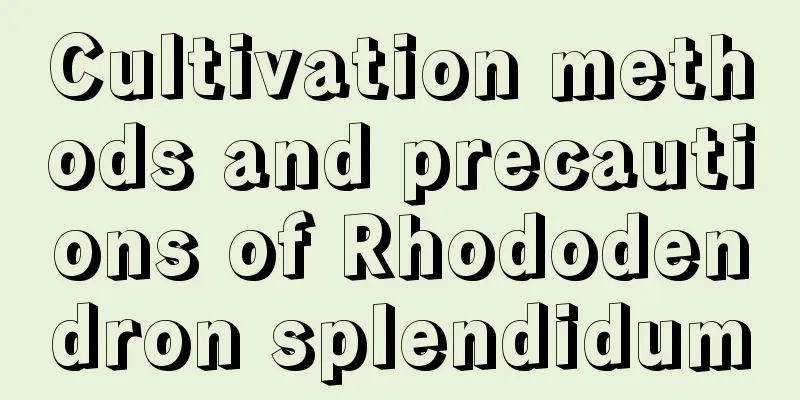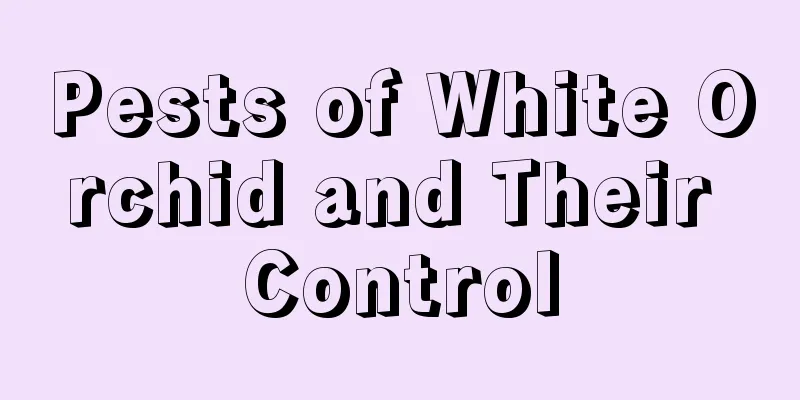What are the cultivation methods and precautions of mulberry leaf peony

Growth habits of mulberry leaf peonyMulberry-leaf peony prefers warm and humid growing conditions. It can be cultivated in full sunlight and can be kept in strong direct sunlight in summer. The temperature in winter must be controlled above 6°C, otherwise the plant will be easily affected by frost damage. Mulberry leaf peony cultivation methodSoil: Mulberry leaf peony is not demanding on soil and grows well in loose and fertile soil with a pH value between 6.5-7. Light: Mulberry leaf peony likes to grow in an environment with sufficient light, especially during the flowering period. Sufficient light is conducive to the formation and opening of flower buds, and the growth state of the plant will also be better. Temperature: Mulberry leaf peony prefers warm and humid growing conditions. It can be cultivated in full sun and can be kept in strong direct sunlight in summer. The temperature in winter must be controlled above 6°C, otherwise the plant will be easily affected by frost damage. Watering: Just follow the principle of watering thoroughly when the soil is dry. In the hot summer season, water evaporates quickly, so you can spray water on the plant to keep it moist. Try to water it once in the morning before the temperature rises, and do not water it during the hot midday period. Fertilization: When raising mulberry leaf peony at home, you can apply some decomposed organic fertilizer or compound fertilizer in appropriate amounts, and apply it thinly and frequently. It can be diluted into fertilizer water for watering, and fertilization should be stopped in winter. Precautions for cultivation of mulberry leaf peonyRepotting regularly: The soil in the pot needs to be replaced once a year to prevent the soil from becoming compacted due to long-term use. When repotting, you need to choose a larger one to ensure that its roots have enough space to grow. When repotting, you need to trim its roots, remove rotten roots and dry roots, and then repot it. Pests and diseases: Common pests of mulberry leaf peony include red spiders and aphids, which can be killed by spraying 10% insecticide emulsion. When the plant has anthracnose or leaf spot disease, methyl thiophanate powder can be used to spray according to the instructions. |
<<: When is the best time to sow rose seeds?
>>: How to care for potted golden marbles? How to cultivate golden marbles in potted plants
Recommend
How to plant Dendrobium candidum and how to survive the winter
1. How to plant Dendrobium officinale 1. Bark pla...
Violet Flower Language
1. Flower language introduction 1. White: The flo...
Keep these 3 kinds of flowers at home, they are easy to grow and beautiful, and you will never have the same flowers as others
Huahua understands everyone's thinking. Just ...
What to do if the leaves of Begonia wither
1. Change soil and control water Reasons for wilt...
How to make lovely roses bloom
1. Increase sunlight If you want the lovely rose ...
When is the best time to repot the Jade Plant? What is the best time and method to repot?
Time to repot Jade Plant The Jade Plant grows rel...
Can Clivia miniata bloom?
Clivia can still bloom after being clipped The ph...
Can I grow basil at home?
Can I grow basil at home? You can grow perilla at...
How to grow hyacinth
1. Breeding environment 1. Soil: It is best to ch...
How to plant apricot kernels so that they can germinate?
Normally, after we finish eating apricots, we can...
How to grow Aspidistra
1. Breeding environment (1) Soil: The requirement...
Taboos on placing money trees
1. Do not place it in a dark area This tree origi...
Where is Poria suitable for planting
Poria cocos planting area Poria cocos mainly grow...
How to plant longan sprouts in pots
Longan can be planted after it sprouts. First, co...
Four seasons maintenance method of California poppy
spring After the temperature rises, the growth of...









